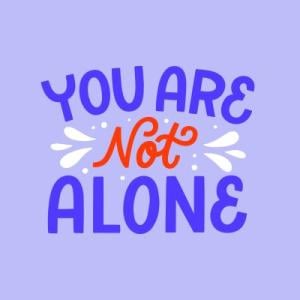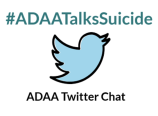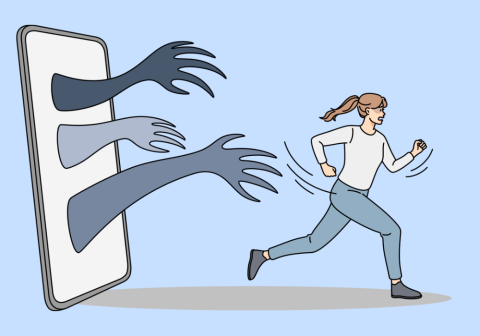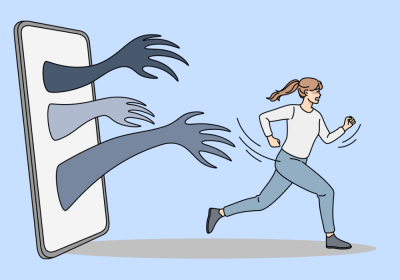What I Wish Everyone Knew About Suicide
What I Wish Everyone Knew About Suicide

Suicide isn’t an easy topic. Yet, we can’t afford to shy away from it. The reach of suicide is staggering, and its impact is tragic and often avoidable. In the U.S.:
- Someone dies by suicide every 11 minutes
- It is the 2nd leading cause of death for youth and in the top 10 for adults
- The rates are increasing
- More people die by suicide than car accidents
- 1 in 5 teens has serious suicidal thoughts
- For every person who dies by suicide, more than 300 have contemplated it
The Path to Suicide
The stereotype of suicide risk is someone who has been depressed for a long time and eventually gives up on life. While that is the case for some people, I increasingly see a different picture.
Rather than a slow decline, sometimes people are completely fine – no desire to die – until a triggering event happens. All of a sudden it feels like too much, and they become suicidal, like a switch being flipped. This path to suicide is particularly concerning because it can happen incredibly quickly (sometimes within minutes) and without warning.
Why We Have Suicidal Thoughts
To understand how someone can become suicidal, you have to know a bit about how our minds word. They are designed to be problem-solvers…and they’re great at it! When we encounter a problem or something we don’t like, our minds get busy finding solutions.
This problem-solving is really helpful when we lose our keys or need to juggle busy schedules. It isn’t so helpful when the problem is us or our feelings.
When the problem is how we feel, our minds may offer suicide as a solution. It’s like they are saying, “You feel bad! I know how to make that stop. You won’t hurt anymore if you’re not here.”
If the problem is that too many things have piled up at once, it can feel like it’s just too much and that there’s no way we can handle it. Again, our minds say, “The only way out is suicide.”
Sometimes we are the problem. We might think that we are a burden to others or that they’d be better off without us. Solution? Don’t be here anymore.
In all of these situations, our mind is trying to help us solve a problem, but, there are two big issues. The first is that thinking can be skewed. Our thoughts become distorted and negative when we feel depressed, anxious, ashamed, guilty, or angry. Especially in those states, we cannot trust our thoughts. They are not always accurate, and they definitely are not always helpful.
The second issue is that intense negative emotions like sadness, hopelessness, and anxiety shut down creativity, making it hard for our brains to come up with lots of ideas. They get locked onto suicide and trick us into thinking it is the only available option.
Suicidal thoughts are just a mind’s misguided attempt to fix a problem. We do not have listen to them, and we most certainly do not have to act on them.
What to Do If You Feel Suicidal
If you are experiencing suicidal thoughts, hold on to hope! There are other solutions.
In the moment:
- Remind yourself that those thoughts are just your mind trying to help you solve a problem…but it’s not actually being very helpful right now! Make it come up with 5 other possible solutions that do not involve hurting you
- Remind yourself that you will get through this and that you are not alone.
- Call or text 988. There is always someone there to help you get through the tough moments
- Contact your therapist or doctor (if you have one)
- Reach out to someone who cares about you (if your mind tells you that no one cares, push back on that. Remember, minds lie and distort things, especially when we’re upset. Is there anyone who has expressed care or concern about you?)
- Make a list of reasons to live. Put every single thing you can think of on that list, even if it seems small
- Go to the nearest emergency room if these options aren’t helping
For longer-lasting solutions:
- Schedule a therapy session. ADAA has a list of therapists who can help
- Talk to your doctor about possible medication
- Come up with a plan to address the problems that are weighing on you
- Come up with a safety plan that includes things you can do to stay safe or cope with overwhelming feelings
How to Help Someone Who Is Struggling
If someone reaches out to you or you suspect that they may be experiencing suicidal thoughts, it can be hard to know how to help. The number one thing you can do is just be there. Ask questions, without judging, about what is going on.
In the hard moment:
- Listen. Offer encouragement: this is hard, but you will get through it.
- Ask them to go on a walk with you (or some other activity that gets them out of their current location and keeps them from being alone).
- Help them with any of the actions above.
After the crisis:
- Check in. Ask how they are doing. Tell them you are glad they are alive and that they reached out to you.
- Ask them about their safety plan for next time and reiterate if reaching out to you is an ok option.
- Ask them about treatment. Are they getting ongoing help and support? Is there something you can do to help make that happen (e.g., offering to help them find a therapist, if you can).
Suicidal thoughts can be scary and overwhelming, but there is hope, and there is help.




















